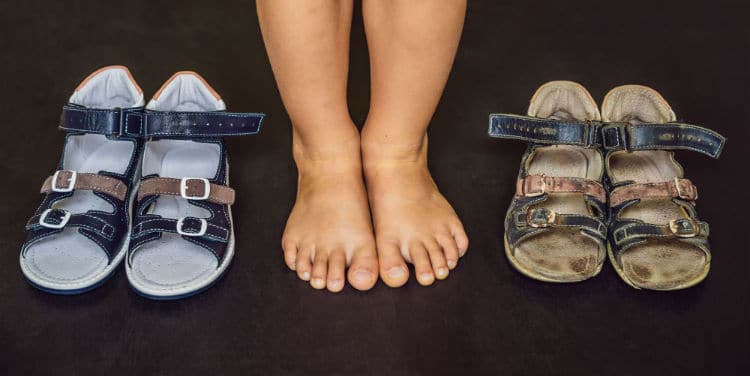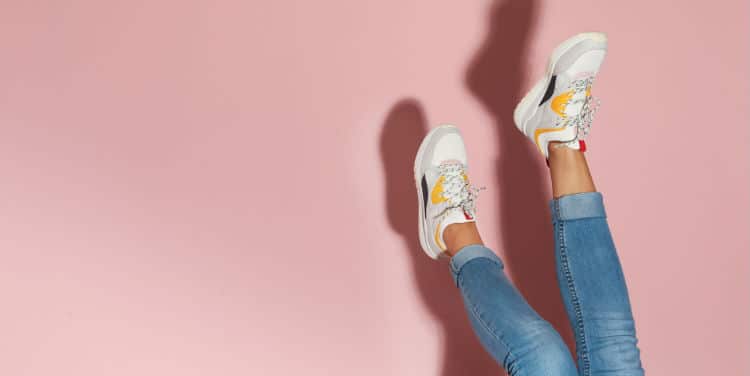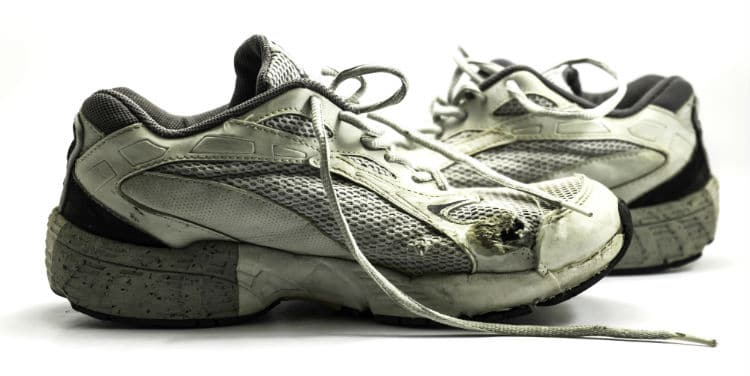Do You Need New Shoes?
Do you need new shoes?
We know that for some of you, the answer to this question is always, “YES, of course!” After all, who doesn’t love a stylish new pair of shoes?
But let’s be serious for a moment.
Although the topic is somewhat difficult to research, there are many studies that suggest a huge percentage of Americans—probably well more than half of us—are wearing shoes that they really shouldn’t be wearing, at least part of the time.
For a variety of reasons, we have a tendency to pick pairs that don’t do our feet any favors. And it’s causing epidemics of heel pain, bunions, hammertoes, and other foot problems that are often (although not always) preventable.
We’re not saying you can’t still be fashionable! Like we said, everyone loves a cool pair of shoes.
But if your shoes are actually hurting your feet for one reason or another, we have to be straight with you: it’s time to get a new pair.
So, we’ll ask again. Do you need new shoes? You might if:
Your Shoes Don’t Fit
Most Americans are wearing the wrong size shoes for their feet.
Remember, “shoe size” isn’t just a single number. In addition to finding a shoe that isn’t too long or too short (measured in size numbers), you should also avoid shoes that are too narrow or too wide (measured in size letters).
Unfortunately, shoe departments don’t always do the best job of stocking shoes in multiple widths. But shoes that don’t quite fit are one of the primary causes of all sorts of painful problems, so it can be really worth it to find something that’s just right.
Some additional tips to help you get the right size:
- Go late in the day. Feet swell slightly after being in use for a while. You want your shoes to fit just as comfortably in the evening or after activities as they do in the morning when you first put them on.
- Always measure. In addition to slightly swelling, feet also slowly change size and shape in a more fundamental, structural way as you get older. For example, you may find that in your 40s your feet are a little longer or wider than they were in your 30s. So don’t just assume you know your size each time you shop.
- Always test. Just because two pairs of shoes are the same “size” on the label doesn’t mean the fit will be identical. Always try on your shoes before you buy. Walk around. Are they comfortable? Do they feel like they support you well? If the answer is “No,” they don’t fit. Find another pair.
- Bring the right pair of socks along. A thick, fuzzy wool or cotton sock takes up a lot more space inside a shoe than a thin nylon dress sock—more than enough to alter the fit and feel of the shoes. So, when testing, make sure you wear the same type of socks you’d normally wear with those shoes.
Keep in mind: the fact that your feet change shape over time means that even your existing pair might not fit any longer, even if it once did.
This is most obvious in the case of children, who can sometimes outgrow their shoes 3-4 times per year. But even adults might “outgrow” a pair of shoes. This is especially true with footwear that you wear rarely or only on special occasions, since they can last for years with minimal wear.
You Don’t Have Shoes Appropriate For Your Activity
Let’s say you’ve got an awesome pair of leather dress shoes. They fit great, feel great, and give you all-day comfort whenever work or social events require you to look professional from head to toe.
Well, they may be great for walking and standing all day, but that doesn’t mean you’d want to go run 10 miles in them, or slip them on before your Saturday morning pickup basketball game!
Obvious, right? Why even bring this up?
Admittedly, this example is a fairly extreme and silly one. But the truth is people wear the wrong shoes for their activities all the time.
The most common real-life situation is not having sport-specific shoes for your activity.
Today it’s fashionable to wear athletic shoes for everyday activity—it even has a trendy name, “athleisure.” And this has a tendency to cause some amateur athletes and “weekend warriors” to assume they can just wear their everyday shoes for any athletic activity they might participate in—going for a run, playing a few sets of tennis, playing basketball, etc.
But they make sport-specific shoes for a reason—and it’s not just to sell you more shoes! Different sports can make very different demands of your feet and ankles.
For example, basketball shoes are bulky with thick soles, lots of cushioning and high tops to provide the shock absorption and ankle protection you need for a sport with lots of jumping and pivoting. But those very attributes make them less-than-ideal for distance running, where the added weight and more limited ankle mobility would be a curse rather than a blessing.
If you’re playing a particular sport or activity (running, dancing, basketball, etc.) on at least a weekly basis, even for just a season, investing in a pair of sport-specific shoes can significantly reduce your risk of preventable pain and injury.
Your Shoes Are Old and Worn Out
All good things must come to an end. This includes your shoes, which—given enough time—will eventually degrade over time through wear, tear, and use.
And we’re not just talking about shoes that are stained, faded, or have holes in them. With a little care, it’s relatively easy to keep an “indoor only” shoe looking nice on the outside. But if the midsoles have lost their “spring,” they just may not be able to provide enough shock absorption to keep your feet pain-free anymore.
Now, the effective lifespan of your shoes can vary dramatically, from as little as a few months to years or even decades, depending on a wide variety of factors. For example:
- How often you wear them. Everyday shoes will, obviously, wear out relatively quickly. A pair that you only wear once or twice per year, however, may last “forever” in practical terms, if you simply don’t wear them often enough to wear them out after years or even decades.
- What you do in them. Athletic shoes that take a lot of abuse from running and jumping will wear out a lot faster than shoes for casual wear involving a lot of sitting.
- The quality of their construction. High quality materials and construction will last longer than shoes that are poorly or sloppily made from inferior materials.
- How heavy you are. All other things being equal, a heavier person will wear out their shoes faster. It’s simple physics—more weight equals more force applied to the midsoles and the treads with every step you take.
There are some rules of thumb out there you might find helpful. For example, it’s often said that a typical pair of running shoes can log between 300-500 miles, depending on the above factors. If you’re training for a marathon, that might only take you a couple of months! (Fortunately, for most of us they’ll last a little longer than that.)
Although you might not be able to see the condition of your shoe’s midsole, do check the treads for excessive wear. Also, use your body as a guide. If you’re following an appropriate training program with plenty of built-in rest days, but you’re slowly having more and more trouble getting through it without foot pain, there’s a pretty good chance your shoes are starting to wear out.
Shoe Advice from Miami’s Foot Expert
Dr. Marizeli Olacio at Omega Medical Group (OMG) is a foot specialist who works with people from all walks of life—from kids and seniors to blue collar workers to professional basketball players!
If you’re constantly struggling with foot pain and don’t know why, our team can help you diagnose the issue, fix it, and then prevent it from coming back.
After assessing your foot structure and lower gait mechanics, we are happy to provide smart footwear recommendations to keep your feet as pain free as possible, and also determine whether or not you might need custom orthotics to really get the best performance out of your footwear.
To schedule an appointment with Dr. Olacio and OMG at one of our two convenient locations, please give us a call today at (305) 514-0404.



